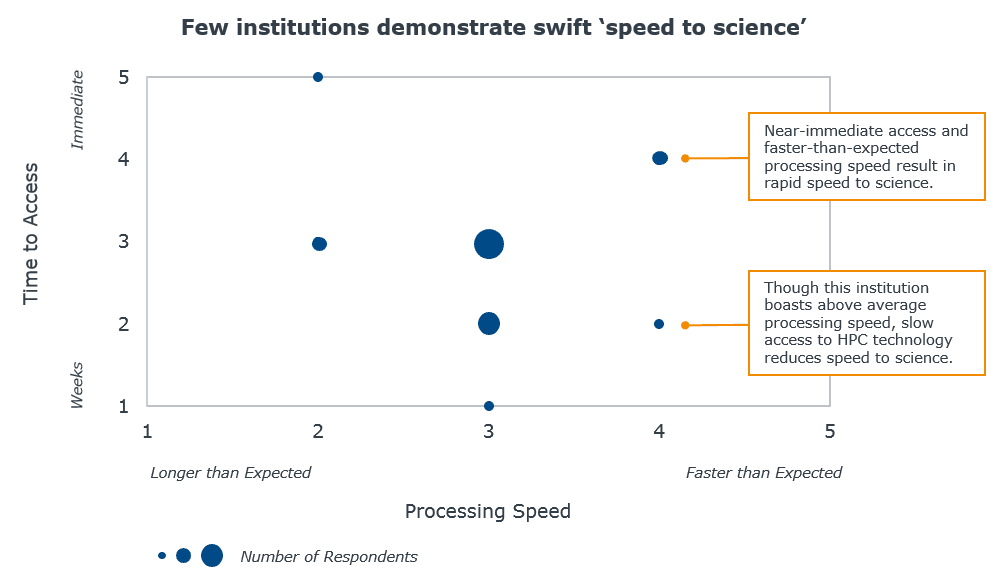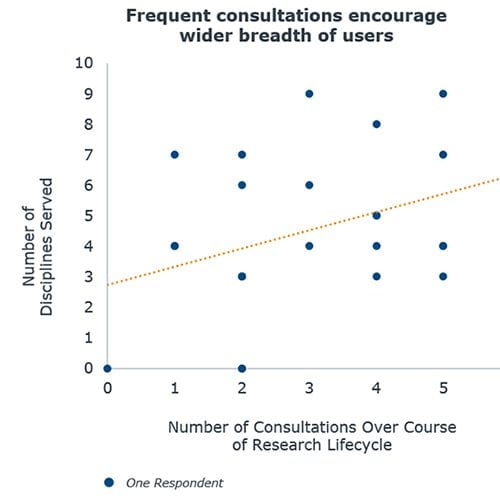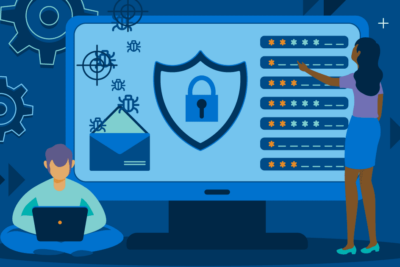Is your research computing really “high performance”?
This past spring, the IT Forum partnered with the University Research Forum to create EAB’s Research Computing Functional Collaborative. Over 40 heads of research computing came together around the virtual table to discuss common pain points, looming strategic decisions, and high-visibility projects. This dialogue gave research computing leaders the chance to ask, “What is everyone else doing?”
Participants asked each other questions about range of topics: Queries related to data storage, security and compliance, processing speed, infrastructure, and consultative services dominated the functional collaborative conversations. But what heads of research computing craved most was the ability to benchmark themselves against other participants in a variety of areas to better guide their own strategy and investment.
In an effort to collect this data on behalf of members, EAB researchers developed the Cross-Institutional Research Computing Alignment (CIRCA) survey, which launched in early July. Colleges and universities who complete the survey will receive a customized benchmarking analysis that illustrates where their research computing unit stands relative to peer institutions.
From the results of our CIRCA survey, we’ve completed two preliminary analyses that answer two of the questions commonly posed by research computing leaders:
- How can heads of research computing support researchers in completing their analyses more efficiently, facilitating swifter “speed to science”?
- Do regular consultations with faculty throughout the research lifecycle encourage more researchers to utilize central research computing resources?
1. Processing power doesn’t guarantee speed to science
Research computing leaders articulated a common goal: Supporting faculty members in producing analyses as quickly as possible, thus increasing their speed to science. However, processing power is only part of the equation. While swift speed to science does require research computing leaders to ramp up their processing speed—surpassing gigaflops with cutting-edge teraflops—it also means ensuring researchers can access High Performance Computing (HPC) technology on demand, without procedural delay.
Preliminary CIRCA data indicates that over a third of respondents with average or faster-than-expected processing speed actually slow down speed to science by not prioritizing quick access to HPC technology. At these institutions, researchers have to wait days or even weeks to access an HPC cluster; in contrast, some other institutions responded that they provide faculty access to high performance computing technology in mere minutes.

Colleges and universities that have faster-than-expected processing speed and streamlined researcher access to HPC technology facilitate rapid speed to science. As a result, this allows researchers more control over the timeline of their analyses: “We began to adopt the view that research computing should be governed by the researchers,” explained one CIO at a Canadian institution. “It completely shifted our thinking.”
2. Frequent consultation expands breadth of disciplines served
Research computing leaders also expressed a desire to increase the number of faculty that made use of their unit’s research computing resources. In particular, many sought to engage researchers from a greater variety of disciplines. However, researchers belonging to departments that don’t traditionally interact with research computing technology require hands-on support and guidance.
“How can we best guide researchers when they come to us, asking questions?” asked the information and data systems manager at one public research university in the South. “There’s often too much shuffling around to find them the support that they need.”
To address this concern, many research computing units are beginning to offer researchers more opportunities for consultation at various points throughout the research cycle—from pre-award planning support to post-publication data storage.

As the number of research consultations offered increases, researchers from a greater variety of disciplines are more likely to utilize research computing resources. When research computing units offer consultation on topics such as financial planning and data analysis, they were more likely to bring in researchers from disciplines such as the arts, humanities, business, and social sciences. More streamlined and extensive guidance is key to encouraging potentially hesitant researchers to give research computing a try.
For customized guidance, complete the CIRCA Survey
If your research computing unit would like personalized guidance on strategy and investment, there is still time to fill out the CIRCA survey! Email us today for more information.
More Blogs

Bringing a digital strategy to life

Institutional Research and IT are working together—here's what that means for campus analytics
